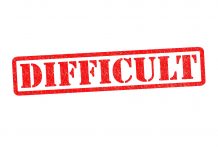When you borrow for your home, you’ll likely be taking on hundreds of thousands of shillings in debt that it will take well over a decade for you to repay. You need to know the mistakes to avoid before venturing into a mortgage.
The transaction can be a good one, provided you make smart choices about the home you buy and the mortgage loan you take on. Or, it can be a financial disaster that hurts your ability to accomplish financial goals at best and leads to foreclosure at worst.
To maximize the chances of the former occurring and your home turning out both to be a nice place to live and a good investment, you must avoid some big mortgage mistakes.
Not getting pre-approved for a loan
Pre-approval — which is different from pre-qualification — is a process that involves a mortgage lender doing a preliminary check of your credit report and other financial details to determine if you’ll be able to qualify for a mortgage and how much you can borrow.
Getting pre-approved helps you determine how much house you can afford so you won’t waste time shopping for a home that’s too expensive. You’ll also be a more competitive buyer when you include a pre-approval letter with your offer since sellers will know you’re serious and likely to be able to close the deal.
Basing the amount you borrow on what the bank says you can afford
When you get pre-approved for a mortgage — or apply for a loan — the bank will decide how much it’s willing to lend you. In many cases, however, the loan the bank approves you for may be larger than the amount you had planned to borrow.
While it can be tempting to upgrade your expectations and buy a costlier home if the bank agrees to give you more money, resist the urge to do this.
Instead, decide how much you can comfortably afford to spend by looking at your budget and your other financial goals. Then, stick to this limit — even if the bank is willing to give you more — so you don’t end up house poor and forced to scrimp on other priorities that are important to you.
Not shopping around for the best rates
Even a small difference in mortgage rates can make a big impact. For example, a Kes 3,000,000 mortgage at 4.0% interest would have a total cost of Kes 515,609 and your monthly payments would be Kes14,320. However, at 4.25%, your total cost for the same Kes 3,000,000 mortgage would be Kes 544,016 and your monthly payments would be Kes 15,110. Each year, you’d pay almost Kes 1,000 more in payments — and your loan would cost you almost Kes 300,000 more.
There can be big differences from one lender to the other in terms of the interest rate you’re charged, so get several quotes from trusted lenders before you decide who you’ll be paying back for the next few decades.
Taking out a new loan before your mortgage closes
Buying a house can be a time-consuming process, and you may find yourself facing expenses associated with moving. You may be tempted to take out a new loan to finance new furniture or a moving truck or may decide to put a bunch of big costs on your credit card.
The only problem is, this could affect your debt utilization ratio and potentially impact your ability to close on your mortgage. Until you’ve actually signed the papers and your home purchase has been completed, refrain from doing anything that affects the amount lest you run into this issue.
Switching jobs before you close on your loan
Switching jobs could also raise red flags with lenders and could cause your mortgage approval to be rescinded.
Lenders want proof of employment and they consider only steady, reliable income when determining how much you can borrow. A last-minute change in your work situation could cause your deal to fall apart, so try to stay in your position until you close on your loan.
Most of these mistakes can be avoided. Errors do occur but you need to be informed to avoid making mistakes that can potentially make you lose financing.














